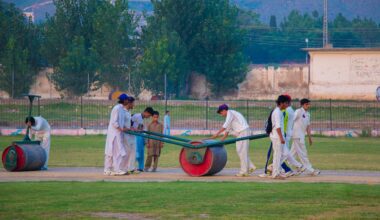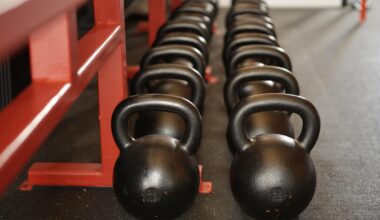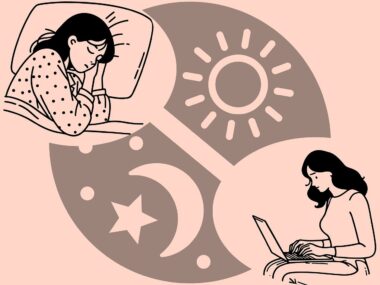Sleep Deprivation: Effects on Athletic Endurance and Strength
Athletes require an adequate amount of quality sleep to maintain optimal performance. Sleep deprivation affects various aspects of physical performance, including endurance and strength. Studies have shown that athletes who do not get sufficient sleep often experience decreased stamina and reduced power during their workouts. Lack of sleep can lead to inadequate recovery, affecting muscle repair and growth, which are crucial for athletic performance. Fatigue can also lead to poor decision-making and slower reaction times during competitions. Over time, chronic sleep deprivation can hinder an athlete’s progress, leading to burnout and injuries that may sideline them for extended periods. Prioritizing sleep is essential to achieving overall goals in any sports discipline. Coaches and athletes should focus on improving sleep hygiene and implementing strategies to ensure adequate sleep is obtained. Taking naps, creating a relaxing bedtime routine, and limiting screen time before bed can all contribute to better sleep quality. Maintaining a sleep schedule that allows for at least seven to nine hours of sleep is crucial for athletes. Encouraging discussions about sleep within sports culture can also help athletes appreciate its importance in their training regimens.
Research indicates that sleep plays a vital role in recovery after intense physical activities. During sleep, the body goes into a repair mode, working to recover muscles and replenish energy stores. Inadequate sleep disrupts these processes, leading to slower recovery times and increased feelings of soreness. Athletes who sacrifice sleep may notice a decline in physical strength, power output, and overall endurance, which can be detrimental to achieving personal bests during competitions. Athletes need to understand the physiological processes that occur during sleep, such as muscle synthesis and hormone regulation. Growth hormone release is greatly heightened during deep sleep stages, necessary for recovery and muscle building. Lack of sleep can lower the level of this essential hormone, ultimately impacting physical performance. Furthermore, when sleep is compromised, athletes experience changes in cortisol levels, the stress hormone, which can lead to an increase in fatigue and decreased immune function. This makes athletes more susceptible to injuries and illnesses, further hindering performance. Athletes should focus on creating a sleep-friendly environment that encourages deep, restful sleep to optimize their training benefits.
During sleep, athletes experience several cycles, including REM and non-REM stages that significantly contribute to performance recovery. Non-REM sleep, particularly deep sleep, helps with physical repair, while REM sleep aids in cognitive functions such as decision-making and memory consolidation. When athletes are sleep deprived, they miss out on these critical stages, leading to impaired performance both mentally and physically. A lack of focus can result in mistakes during training or competitions, diminishing an athlete’s competitive edge. Moreover, research suggests that athletes who sleep poorly can struggle with maintaining motivation, leading to inconsistent training habits and a negative mindset. As performance relies heavily on mental acuity as well as physical capabilities, prioritizing quality sleep should be a top consideration for athletes. To improve sleep consistency, athletes should aim to establish a regular sleep schedule, even on weekends, to regulate their body clocks. Establishing a pre-sleep routine, such as engaging in relaxation techniques, can also significantly enhance sleep quality. Prioritizing restful sleep doesn’t just enhance performance; it also fosters overall well-being, crucial in the high-stakes world of competitive sports.
Strategies for Improving Sleep Among Athletes
To combat the negative effects of sleep deprivation, athletes can implement various strategies. First and foremost, developing a consistent bedtime routine helps signal to the body that it’s time to wind down. This can include activities such as reading, stretching, or practicing mindfulness. Additionally, creating a sleep-conducive environment, dimming lights, and maintaining a comfortable bedroom temperature enhance overall sleep quality. Limiting caffeine and heavy meals close to bedtime can also contribute to faster sleep onset. Some athletes may benefit from the use of sleep tracking devices to monitor their sleep patterns and identify areas for improvement. Understanding the body’s natural circadian rhythms can also lead to optimized training schedules. Ideally, workouts should coincide with peak performance times, which often align with energy levels during the day. Athletes need to be aware that sleep is not just a recovery tool but an integral part of their training process. It can directly influence results in competitions, thus making sleep hygiene an important victim for success. Frequent evaluations of sleep quality allow athletes to adjust and adapt their sleep strategies effectively over time.
Nutrition and hydration also play a significant role in influencing sleep quality. A balanced diet rich in vitamins and minerals supports better sleep patterns; foods high in magnesium and potassium, like bananas and leafy greens, can promote relaxation. Staying hydrated throughout the day ensures that athletes aren’t waking up dehydrated, which can interrupt sleep cycles. Furthermore, avoiding alcohol and excessive sugar before bed can prevent sleep disturbances. Certain herbal teas, like chamomile or valerian root, can aid in relaxation before sleeping. These dietary choices can create a strong foundation for optimizing sleep. Many athletes overlook the connection between diet and sleep, which can have a profound impact on recovery and performance. It’s crucial to help athletes recognize the synergy between proper nutrition and sleep hygiene. Encouraging mindful eating habits aligned with their training schedules can significantly enhance overall performance. Taking a holistic approach that includes understanding how nutrition impacts sleep is invaluable in the world of athletics. Improvement in sleep can lead to enhanced physical output, better mood, and focus during training and events, ultimately leading to greater athletic achievements.
Group programs and peer discussions around sleep may also bridge the awareness gap regarding its importance in athletic performance. Coaches and team leaders can initiate dialogues about sleep challenges athletes face, paving the way for shared experiences. Open conversations can reinforce the importance of creating conducive sleep environments, mitigating stigma around discussing sleep, and promoting healthy competition—or the habit of overtraining. By normalizing the conversation about sleep, athletes can hold each other accountable in developing and maintaining healthy sleep habits. Workshops or seminars featuring sleep experts can be beneficial, providing tailored recommendations for athletes at various stages of their careers. Access to educational resources like articles, videos, or podcasts discussing sleep hygiene can also extend awareness beyond just teams. Coaches should encourage open communication about issues relating to sleep and recovery as part of athletes’ overall performance management. Fostering a culture where sleep is prioritized can lead to improved athletic performances and individually tailored recovery protocols. Establishing a supportive environment and rewarding athletes who prioritize sleep can harness a more motivated and successful sporting culture.
The Link Between Recovery and Performance
Ultimately, the relationship between recovery and performance is clear—adequate sleep is non-negotiable for athletes aiming to maximize their capabilities. Understanding that sleep deprivation can lead to severe consequences, from diminished athletic performance to long-term health impacts, should drive athletes to prioritize their rest. Professional athletes often have the luxury of dedicated recovery practices, yet, at all levels of competition, sleep should be viewed as a critical component of training. Implementing strategies to improve sleep can yield measurable benefits, providing athletes with the recovery needed. As the body repairs itself during sleep, it strengthens and prepares for future challenges. Poor recovery results directly influence performance outcomes in physical competitions, where every seconds counts. This understanding can motivate athletes to create tailored sleep regimens that consider training loads, recovery needs, and personal preference. The power of restorative sleep should not be underestimated; prioritizing rest leads directly to enhanced performance, stamina, and strength. Consequently, measures taken to improve sleep quality among athletes are essential toward achieving peak performance in their respective sports. Ensuring sleep is prioritized can significantly influence both individual and team success.
In conclusion, sleep should receive the attention and respect it deserves in the athletic community. The detrimental impacts of sleep deprivation on endurance, strength, and overall competitive performance emphasize the need for prioritization. Athletes, coaches, and trainers must collectively recognize the importance of establishing healthy sleep habits backed by education and open dialogue. Understanding how sleep affects recovery can lead to greater performance outcomes, paving the way for better routines that support athletes’ health. The holistic approach to training should encapsulate sleep as a fundamental pillar instead of a minor afterthought. By committing to practice better sleep hygiene and monitoring sleep patterns, athletes can achieve optimum physical and mental health, driving them forward in their sports careers. A focus on restorative sleep will help athletes bounce back faster from intense training or competitions. As the understanding of sleep’s significance in sports continues to evolve, the athletic community must commit to fostering a culture around valuing sleep. The synergy between committed training, proper nutrition, and adequate rest can propel athletes toward achieving remarkable results in their sports endeavors, making sleep a non-negotiable element of athletic success.





